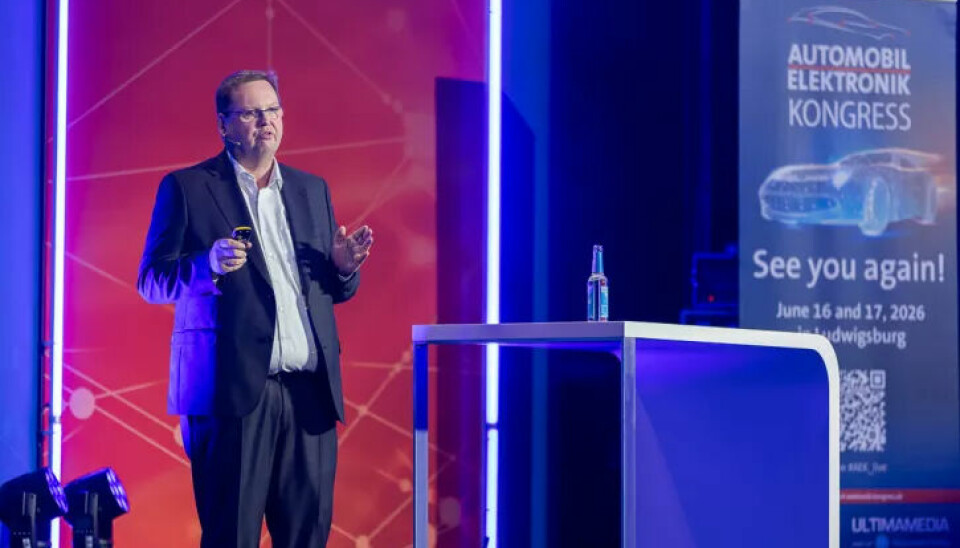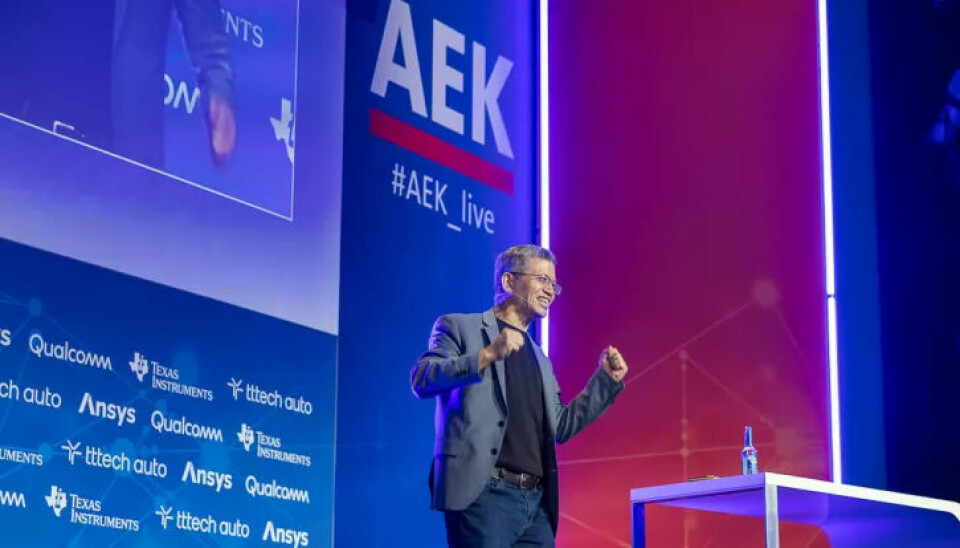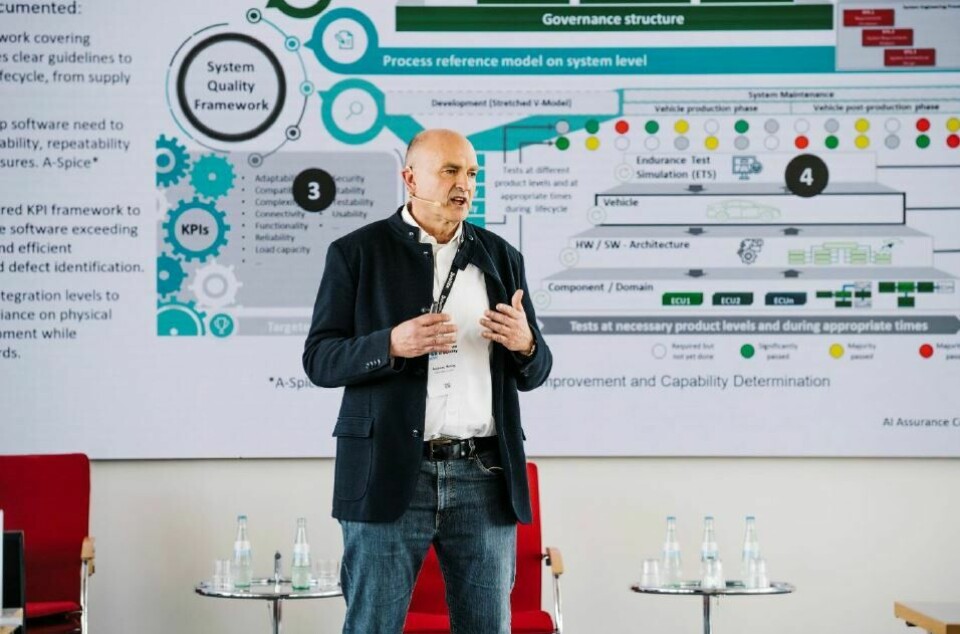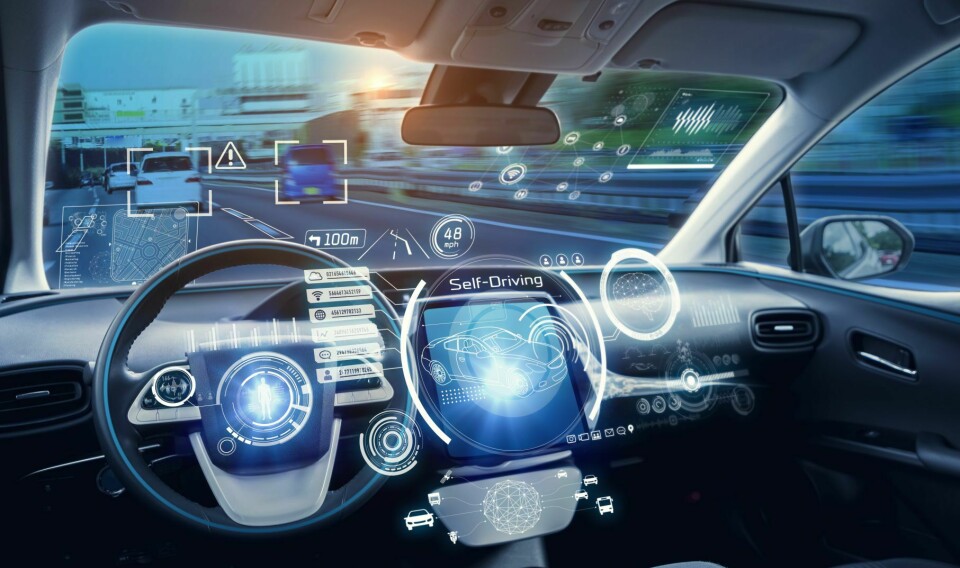Software Defined Vehicles
AEK 2025: Between Vision and Responsibility
The Future of Artificial Intelligence in the Automotive Industry

At the AUTOMOBIL-ELEKTRONIK Kongress 2025, AI was one of the central topics and appeared in many forms: as a driver of technical innovation, as a risk, and as a key to new vehicle concepts. What the speakers said about the topic.
Of course, one might say, the topic of Artificial Intelligence (AI) emerged as one of the dominant themes at the AUTOMOBIL-ELEKTRONIK Kongress (AEK 2025). Currently, you simply cannot avoid AI. But what does its future in the car look like? Certainly multifaceted: it was not only discussed as a technological foundation for software-defined vehicles but also as a socially and safety-relevant field, and even the aspect of security was addressed. Chairman Ricky Hudi made it clear: "Artificial Intelligence is ubiquitous. And it influences almost everything. Both in the product itself, as well as in the development, production processes, and throughout the entire lifecycle."
This was also evident in the presentations. Not everyone had the word AI in their title, but at one point or another, the speakers touched on the topic.
Ubiquity and Disruption: AI as a Gamechanger
Dr. Salil Raje (AMD) put it this way: "The next frontier? Will be AI at the Edge." It will fundamentally change our lives - not abstractly, but concretely in the car. Armin Prommersberger from Harman summed it up: "We probably no longer build machines - we build robots." Dr. Olaf Müller (BMW) emphasized in his lecture "Architecture Paradigms for AI empowered Automotive Experiences": "Vehicles must evolve into intelligent, holistic companions." AI is rightly considered the most transformative technology of the last 50 years.
AI in Vehicles: From Assistance to Empathy
Even today, AI systems in vehicles are rapidly evolving - from simple driving assistants to empathetic companions. Harman demonstrated this with the avatar "Luna," an AI-driven recommendation system that runs in real-time on central vehicle computers and not only understands the driver but also provides proactive support. The idea: move away from isolated functions towards a holistic user experience.
BMW is also pursuing this vision. Dr. Olaf Müller emphasized that vehicles must become intelligent, adaptive companions - equipped with GenAI and a local knowledge base. The new assistant should be able to argue, not just react.
In the area of driver safety, CorrActions presented an AI solution that detects the driver's cognitive state - such as fatigue, distraction, or alcohol influence - without a camera, solely based on sensors like seat or steering wheel signals. The goal is to save lives before it becomes critical.
At the same time, Bosch and Cariad are working on AI-based environmental models to make automated driving more human-like. The ambition: "Code to Road in 12 hours." Horizon Robotics is pursuing a similar path in China with Urban NOA, combined with AI agent logic. Continental is focusing on autonomous trucks with a service-oriented business model.

AI in Development: Automated, Data-Driven, Orchestrated
Even in vehicle software itself, AI is no longer just an accessory. Microsoft impressively demonstrated how multi-agent systems can support the entire development pipeline - from requirements gathering to automated code generation and test coverage. The key, as Dr. Rupert Stützle emphasized, is orchestration: the challenge is not the agents themselves, but their interaction. Magnus Östberg, CTO at Mercedes-Benz, expressed a similar view: "Manually controlling 100 individual agents does not make you more productive."
For Dr. Jim Walsh of GlobalLogic, it is clear: traditional line-by-line programming is dying out. Instead, AI systems are increasingly taking on the role of active development partners - with humans as the reviewing instance. Walsh stressed that generative AI today should primarily serve to improve quality - not to save costs.
Virtual test benches are also gaining importance. Anup Sable from KPIT pointed out that they do not replace real tests but complement them sensibly. Early, automated validation can save time and minimize sources of error.
Security and Trust: The Dark Sides of AI
As much potential as AI offers, it also brings new risks. Max Cheng from VicOne issued a strong warning about the vulnerabilities of generative AI. According to him, around 45 percent of all AI-related security incidents can be traced back to faulty or manipulated models. His appeal: Just because you download a model doesn't mean it's safe.
He and others therefore called for a new level of security - with a so-called AI Guardian for runtime monitoring, combined with systematic penetration tests. GlobalLogic and AMD also see an urgent need for action here.
Another problem is the lack of determinism: AI models are constantly learning, which makes them better on one hand, but also harder to understand on the other. In safety-critical applications, this can become a problem.
Then there is the regulatory pressure: After the accident with the Xiaomi SU7, the Chinese government issued clear guidelines for AI in vehicles. Dr. Liming Chen from Horizon Robotics spoke of a "wake-up call" that aims to readjust trust in automated driving.

Strategies for Secure AI Integration
The secure integration of Artificial Intelligence into vehicles requires a combination of technical infrastructure, software architecture, and cultural change. Dr. Olaf Müller (BMW) emphasised the importance of edge AI in this context. Decisions need to be made where they arise, namely within the vehicle itself. The secure interplay of data protection, low latency, and availability makes edge systems the preferred option for many AI applications.
Platformisation and modularity are considered levers to make AI experiences consistent and interchangeable across vehicle classes and regions. Basic functions such as voice assistants or environmental perception should be realised through so-called 'Foundational Models', which can be flexibly integrated and exchanged - depending on the market or OEM requirements.
Ricky Hudi emphasised that only companies that master complexity, standardisation, and collaboration will be successful. This is exactly what the open-source initiative S-CORE stands for. Eleven industry giants have joined forces to provide a certifiable, operational software stack. No more concept slides, but productive code. 'We rely on productive code - no more concept slides,' emphasised Magnus Östberg (Mercedes-Benz), making it clear that the AI transformation is about concrete results, not strategy PowerPoints.
But technology alone is not enough. Once again, Armin Prommersberger (Harman) put it succinctly: "Changing behaviours is much more difficult than changing technology." The AI transformation therefore also requires a change in mindset, structure, and corporate culture.
Vision: The AI vehicle as a learning companion
In the vision of many congress participants, the car will be more than just a means of transport in the future - it will become an intelligent partner. Yong Han from Geely spoke of vehicles increasingly combining AI, telematics, and big data to not only drive autonomously but also position themselves as a hub of a connected mobility ecosystem.
Dr. Liming Chen (Horizon Robotics) added a cultural dimension to the vision: The car as a "third space", a place between home and work, personalised and functionally enhanced by AI. Smartification - his conclusion - is no longer an option, but the next logical evolutionary stage of mobility.
Dr. Olaf Müller (BMW) described a vehicle that thinks and acts situationally, even to the point of recognising when it's time to buy flowers for the wedding anniversary. For some, this idea may sound creepy...
However, one thing became clear at the Automobil-Elektronik Kongress: AI is also unstoppable in cars. Of course, there are safety aspects to consider. And no one can say today exactly where we will have the "intelligent" digital assistant in the car in the future. But it is clear that the possibilities for use are so diverse that AI will come. There may be concrete information at the next AEK, which will be the 30th anniversary. This will take place on 16th and 17th June 2026.
This article was first published at all-electronics.de



